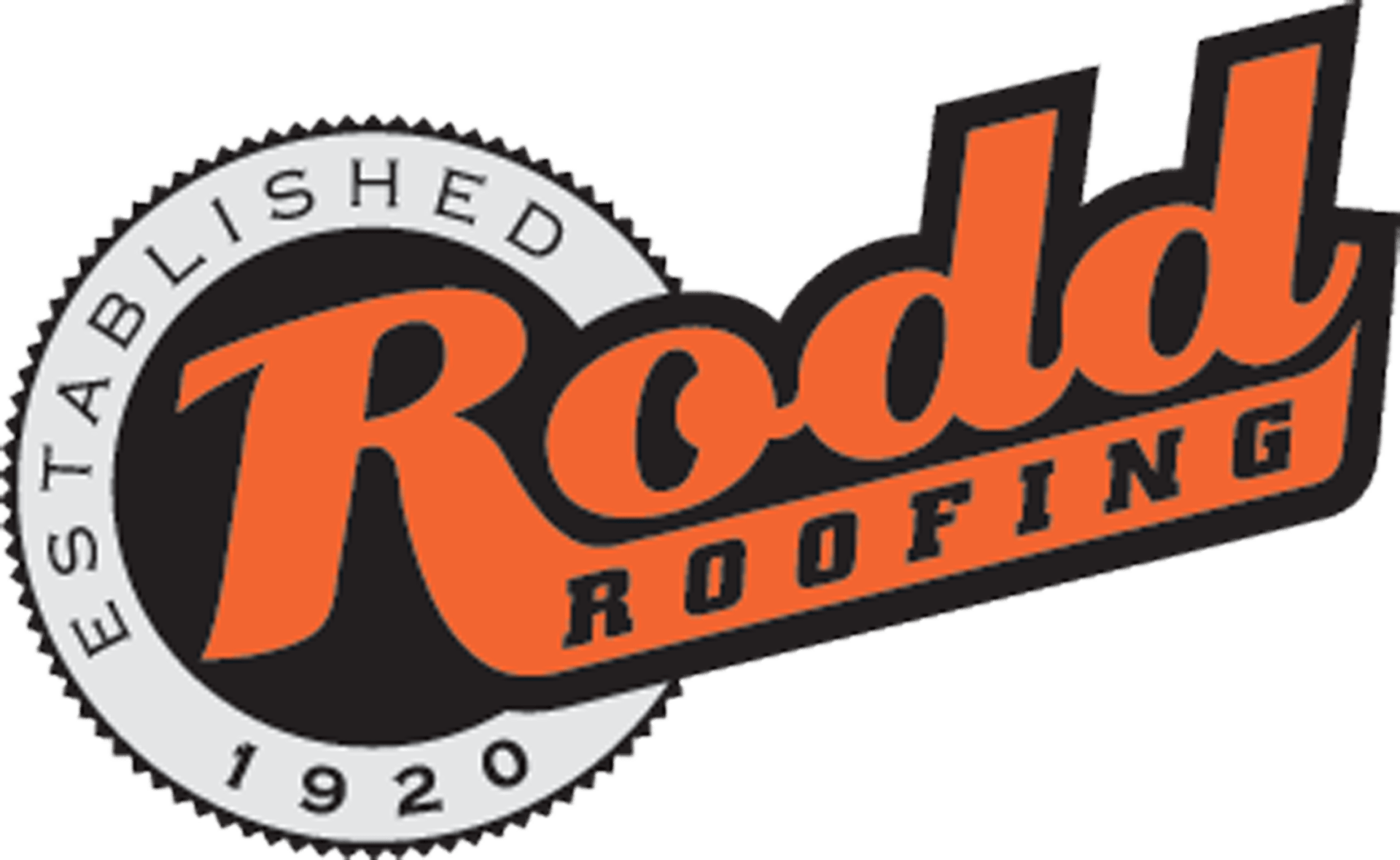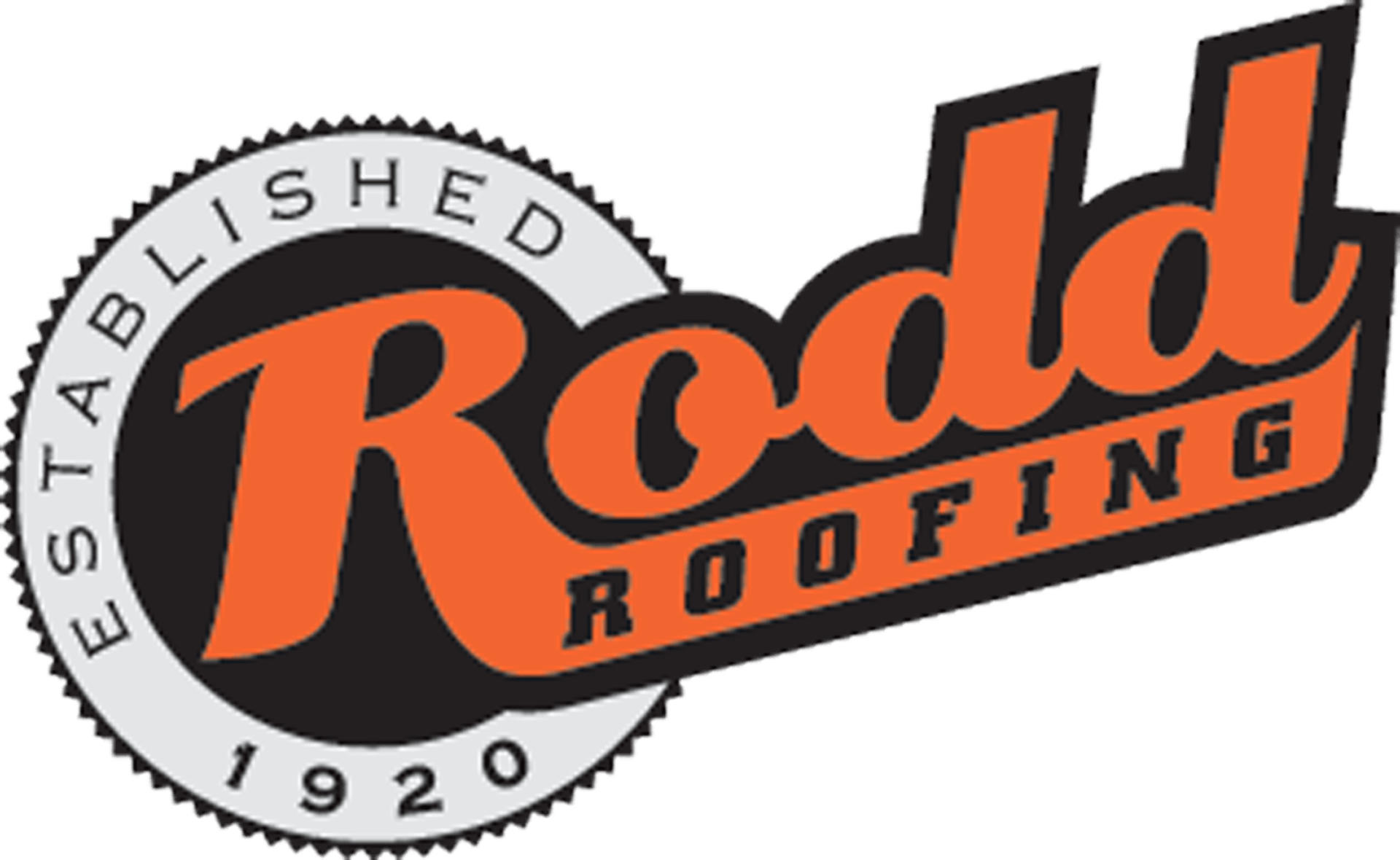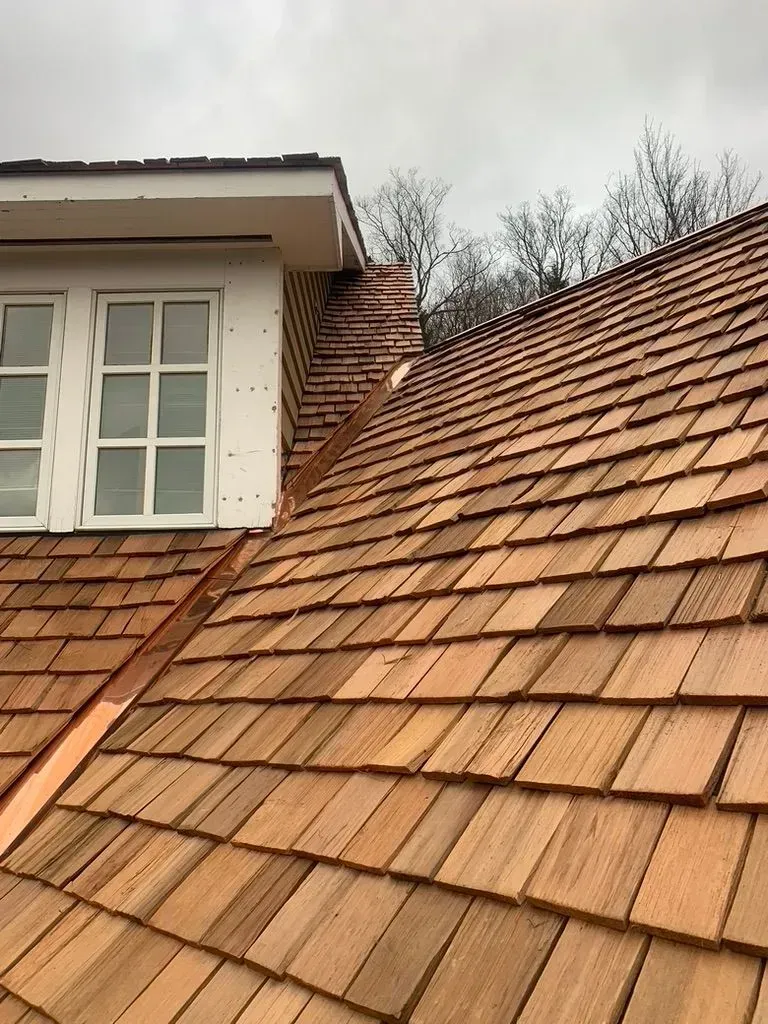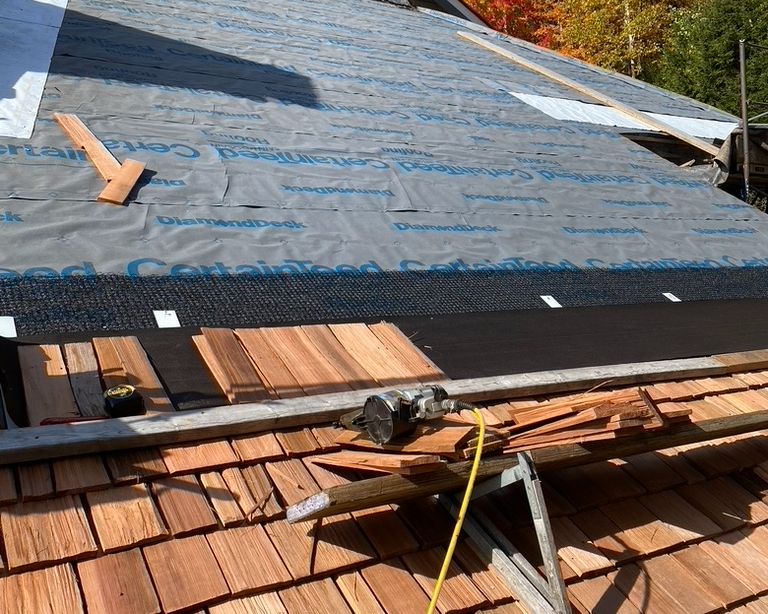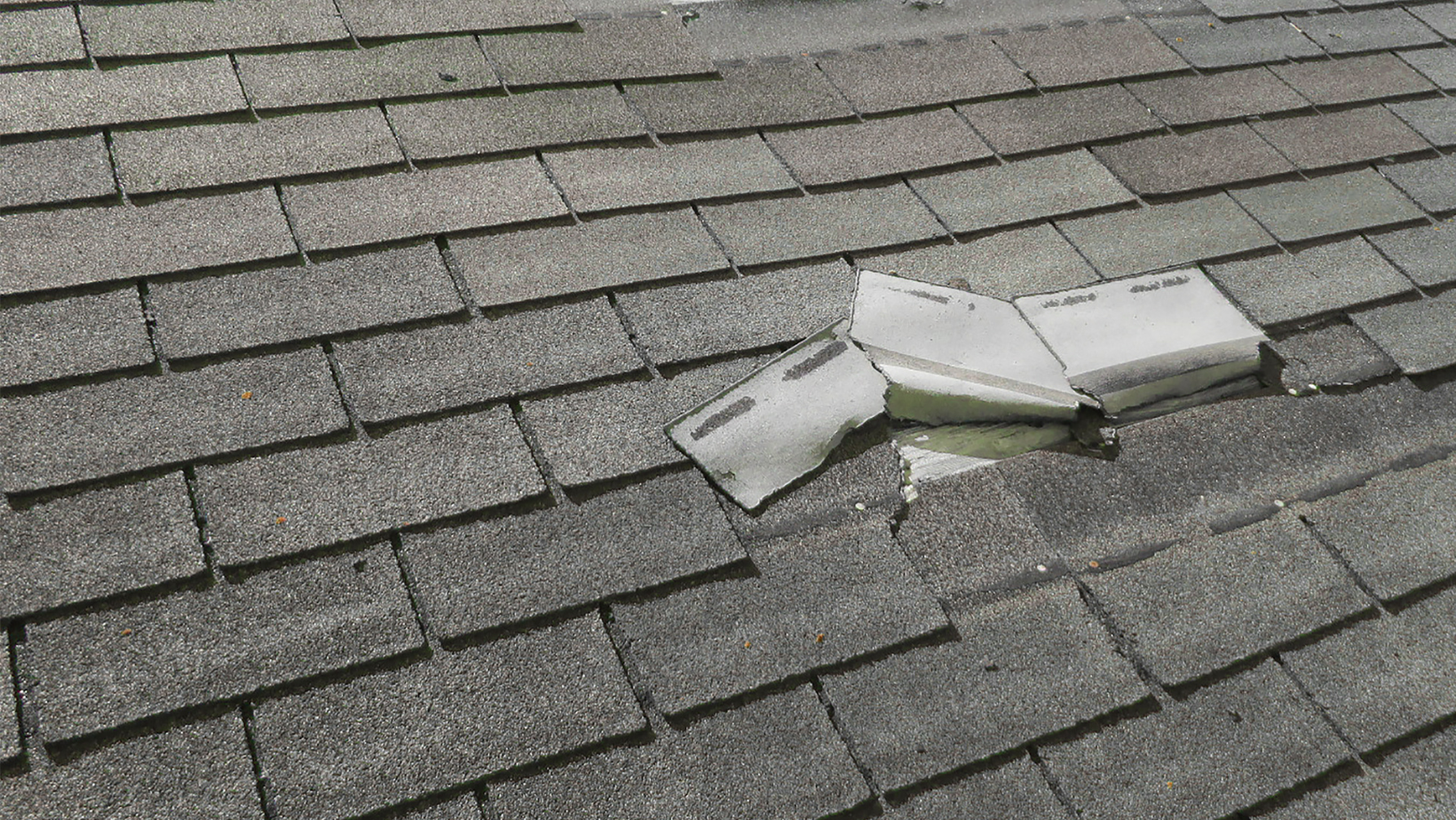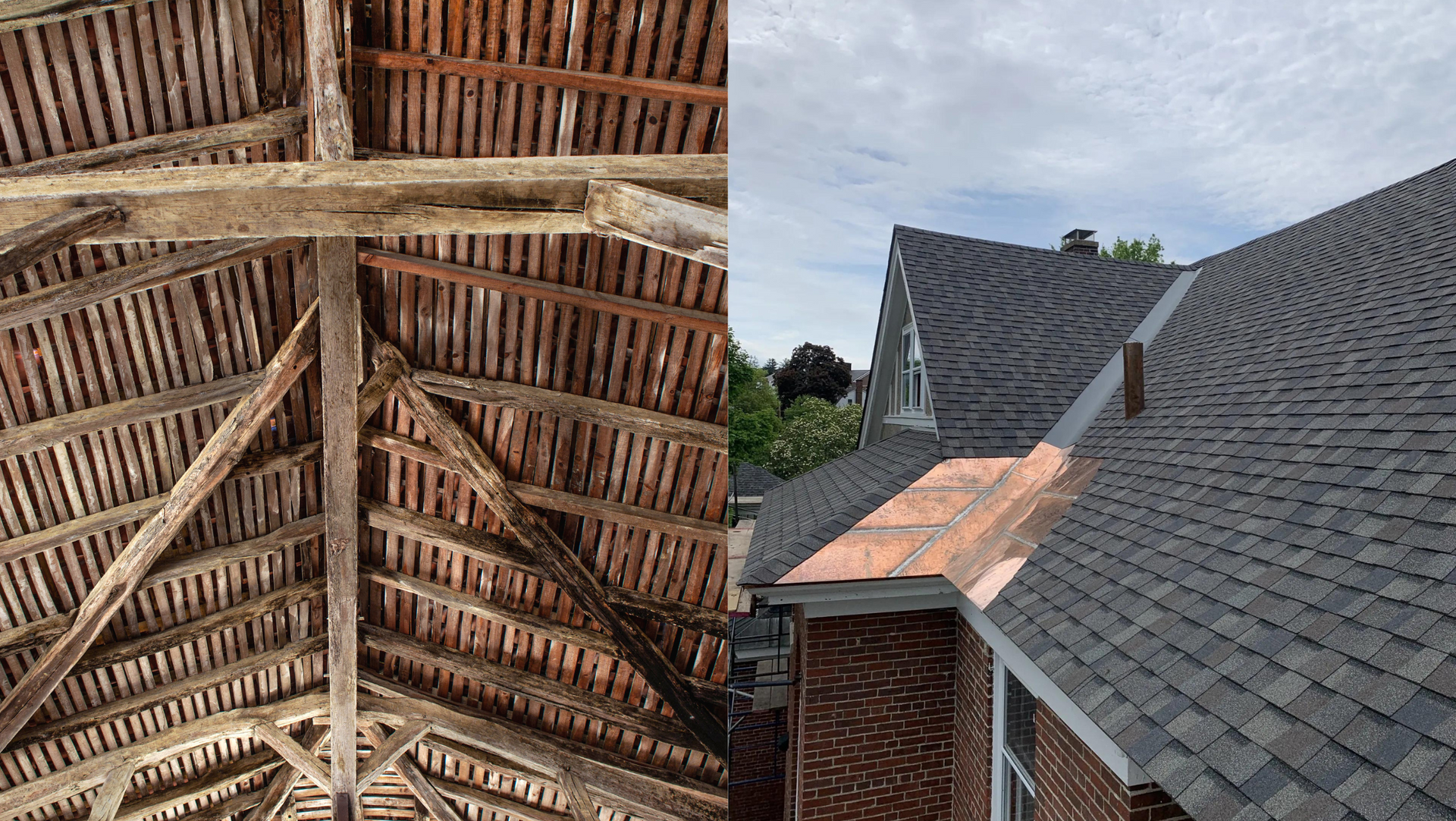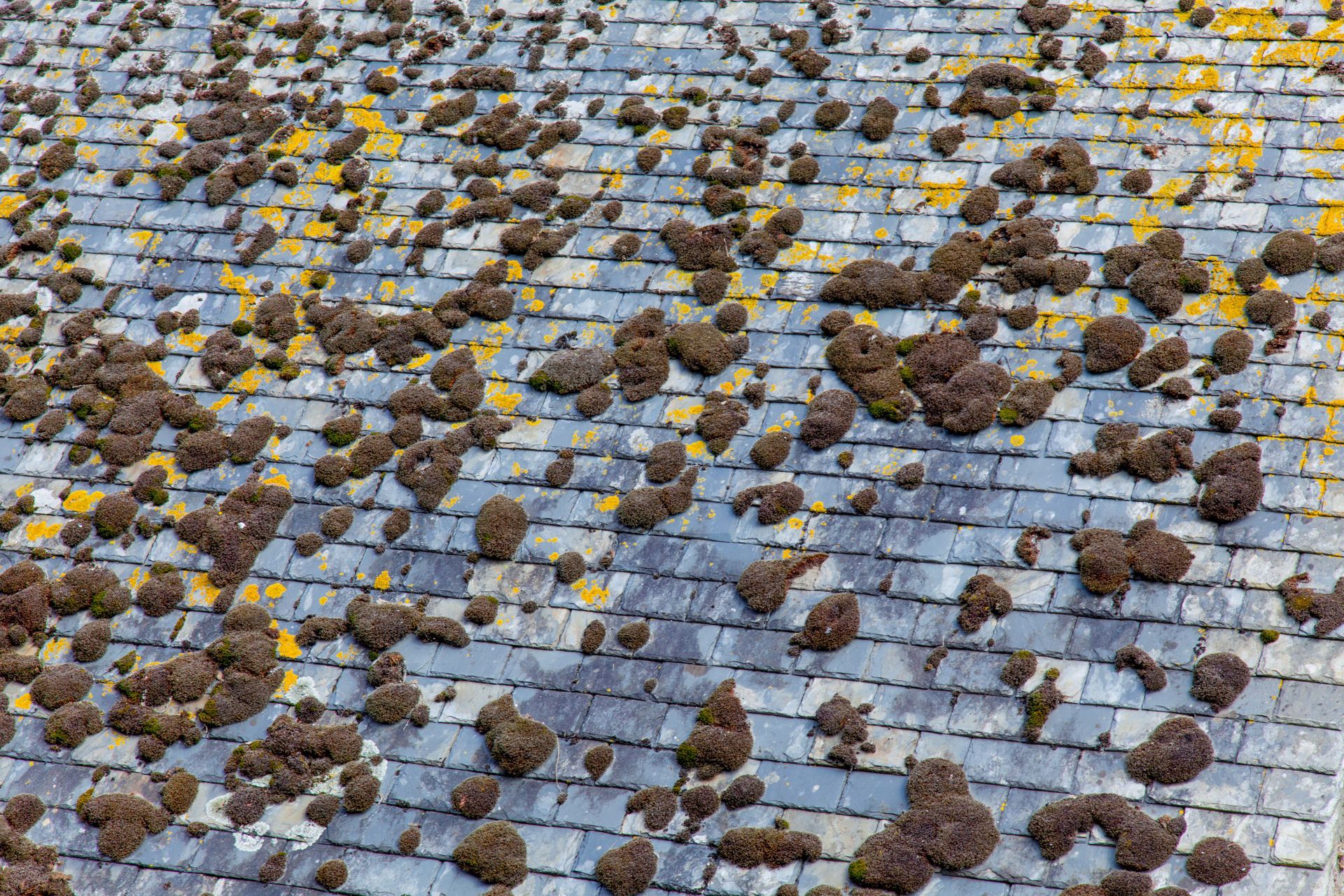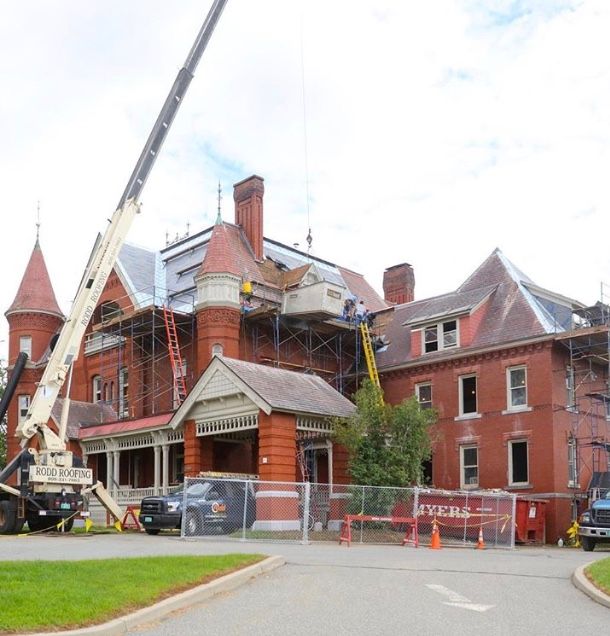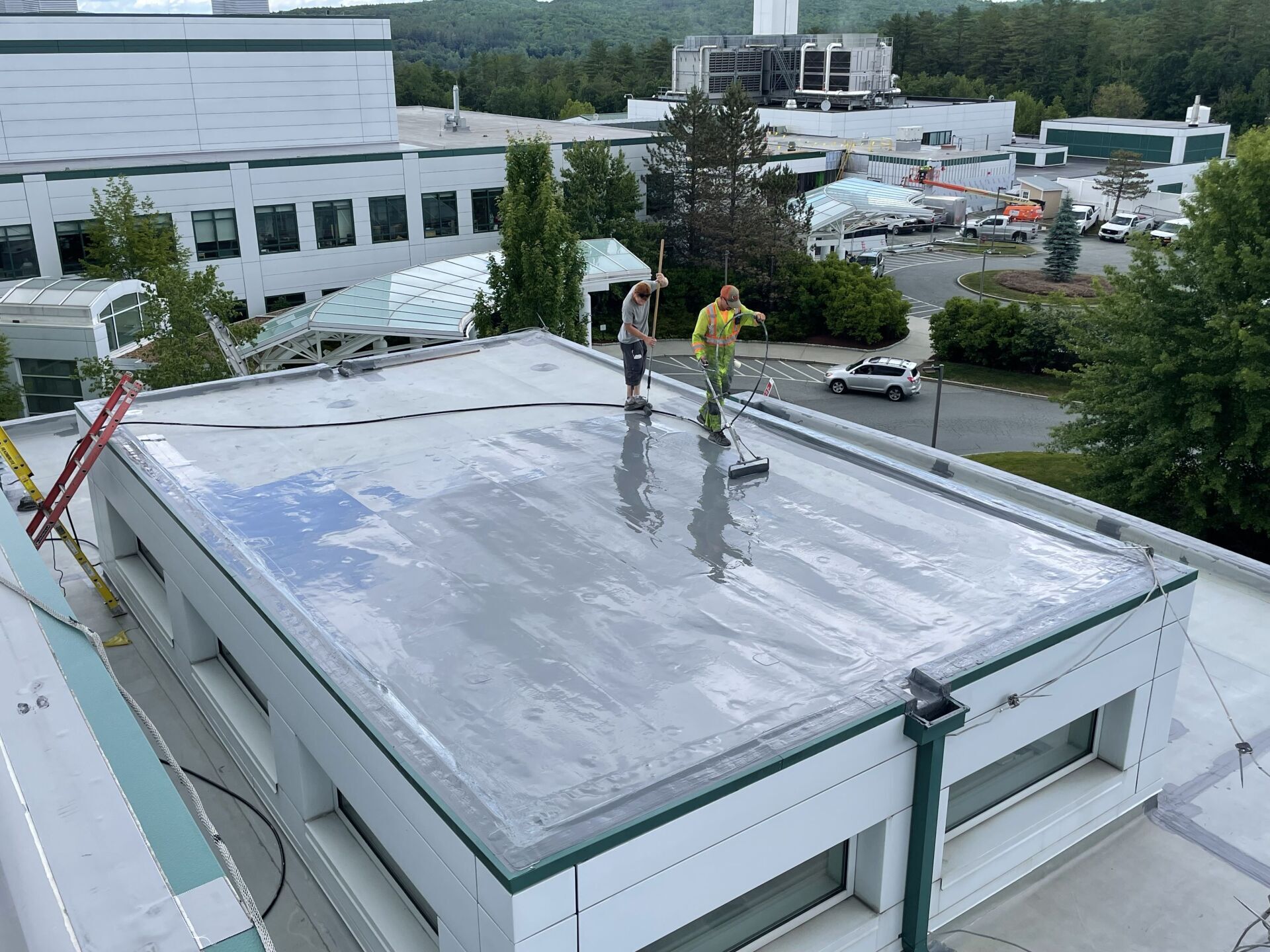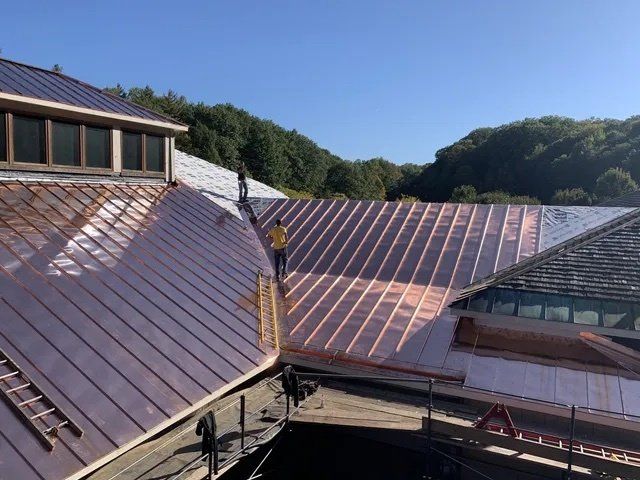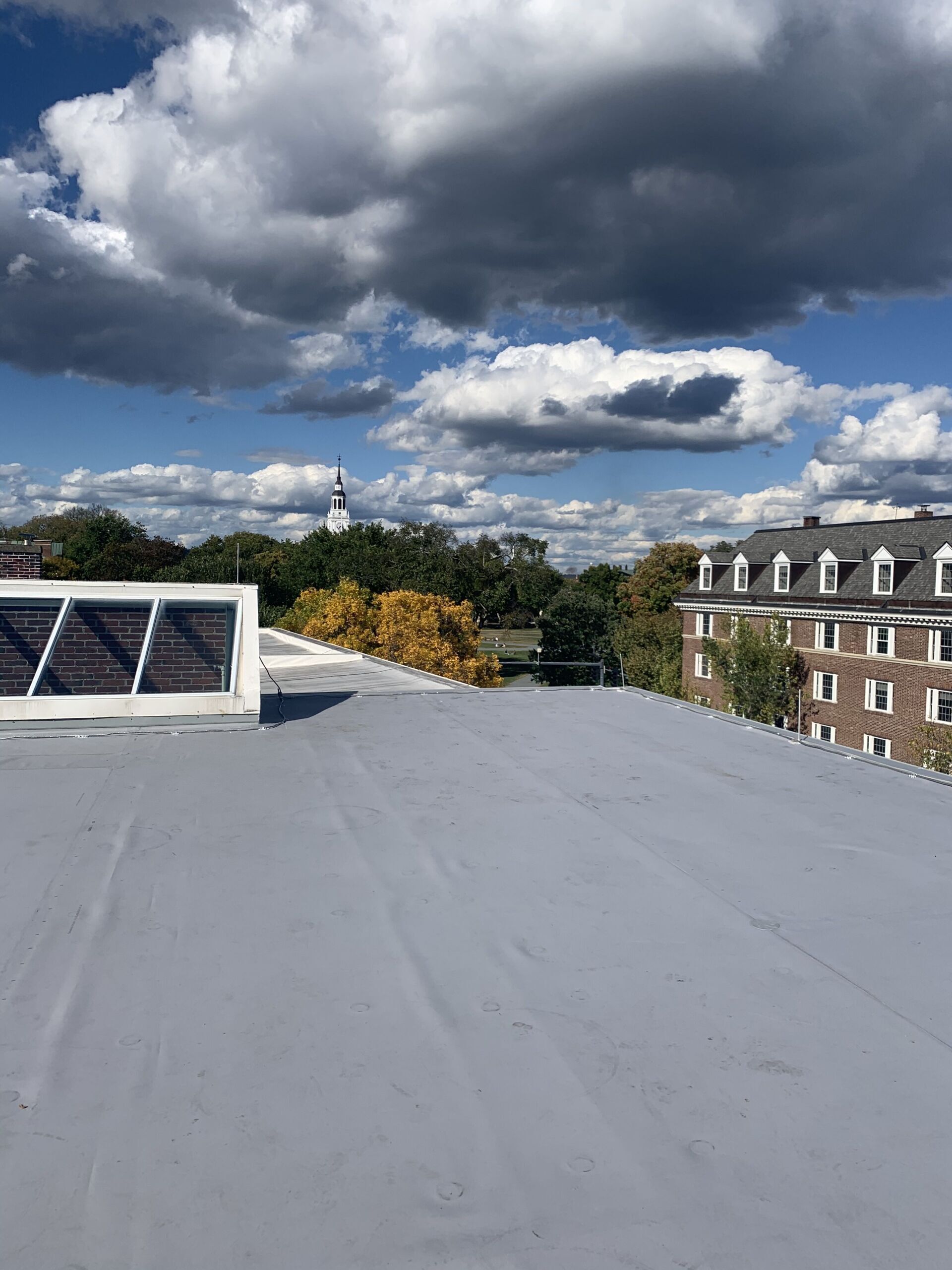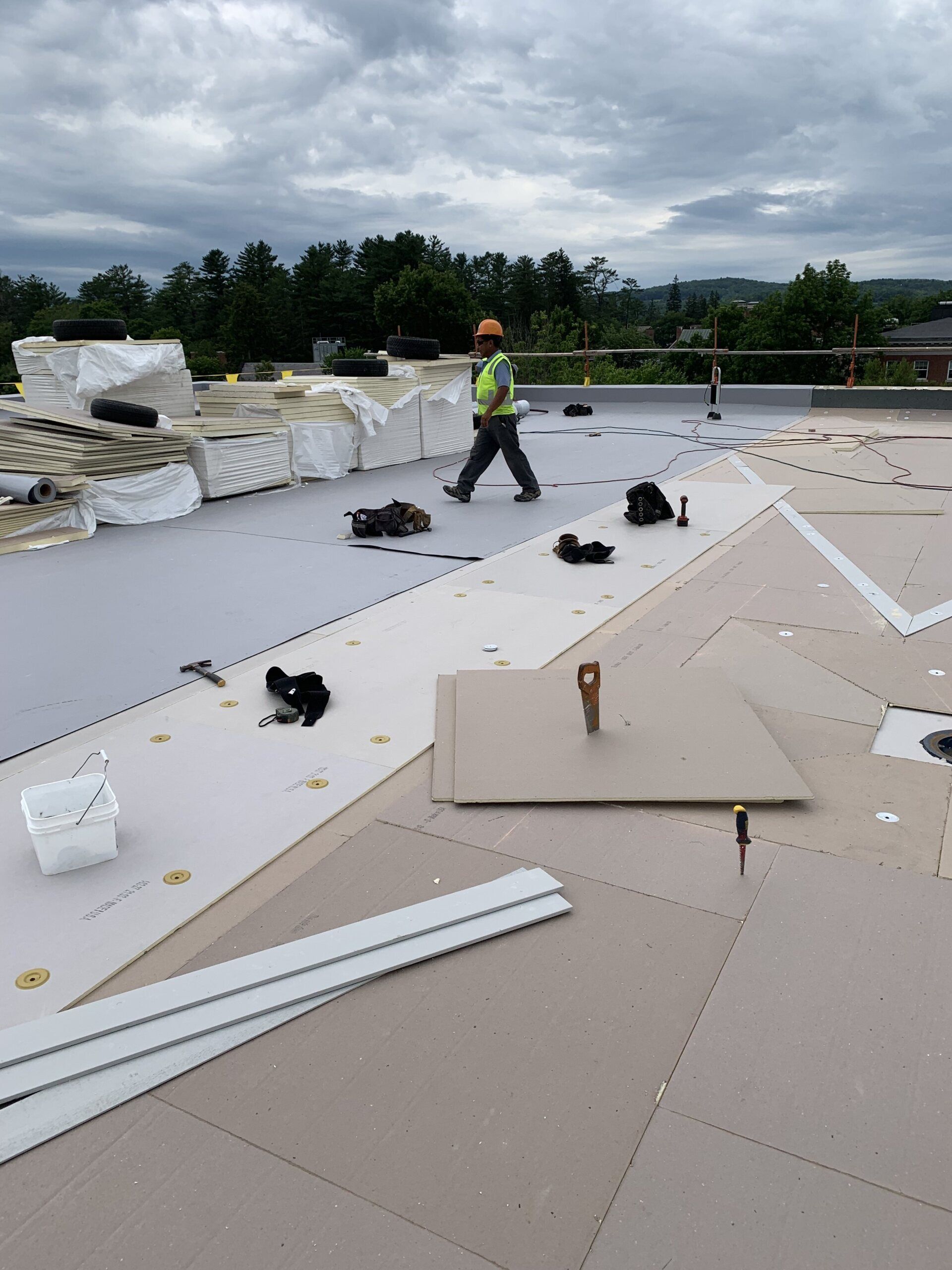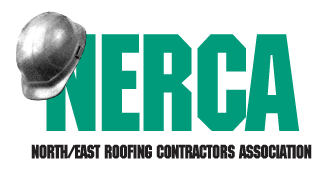Types of Single-Ply Roofing
An Overview of Single-Ply Roofing Systems: EPDM, PVC, and TPO
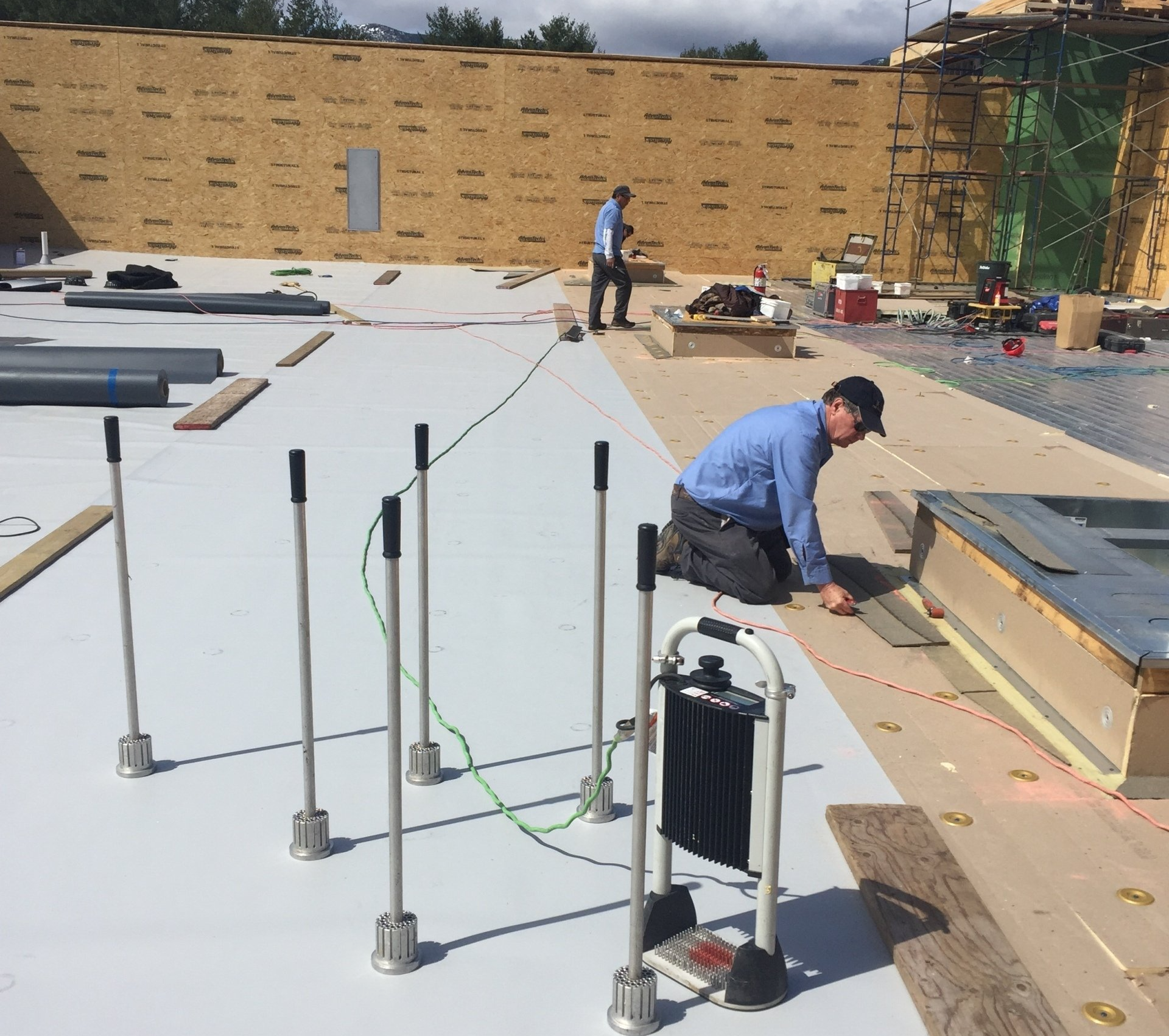
Roofing systems have evolved significantly over the years, providing building owners with more efficient, durable, and cost-effective options. Among these advancements, single-ply roofing has emerged as a popular solution for low-slope roofs due to its simplicity and performance. Unlike traditional multi-layered systems such as Built-Up Roofing (BUR) or SBS/APP-modified bitumen systems, single-ply membranes require fewer materials and less installation time. This makes them an excellent choice for projects ranging from commercial roofing in Vermont to industrial and residential applications nationwide.
Single-ply roofing offers several advantages, including cost savings, installation efficiency, and market acceptance. To fully appreciate the benefits, it's important to understand the three most common types of single-ply roof materials: EPDM, PVC, and TPO.
To generate a watertight and lasting surface, BUR systems require numerous layers of roofing material and asphalt. To finalize the installation, SBS and APP systems use many layers, including a base ply and an adhesive layer under the SBS or APP cap ply.
Single-ply roofing materials, on the other hand, can be put directly on the permitted roofing substrate. This can significantly cut installation time, material costs, and make installation much easier. Single-ply materials' performance, cost, and installation advantages over typical multi-layered systems have considerably improved their market acceptability. To fully appreciate the benefits of single-ply roofing materials, it's necessary to first grasp the many types of single-ply products and how they're made.
EPDM, PVC, and TPO are the three most common single-ply low-slope roof materials.
EPDM - Cured Ethylene Propylene Diene Monomer
EPDM, often referred to as rubber roofing, has been a trusted solution since the 1960s. Known for its exceptional UV resistance and flexibility, EPDM membranes are often black but can also be white to improve reflectivity. Made with polymer and carbon black, EPDM provides long-term durability and consistent performance, making it a reliable choice for Vermont's diverse climate conditions.
Key Features of EPDM:
- UV Resistance for longevity
- Available in reinforced options for added tear resistance
- Cost-effective and easy to install using adhesives or seam tape.
Polyvinyl Chloride (PVC)
PVC roofing membranes are made of two layers of flexible vinyl reinforced with a polyester or fiberglass scrim. Known for their fire resistance and recyclability, PVC roofs are highly durable and available in various colors. The top layer provides UV protection, while the bottom layer is optimized for flexibility and weldability. PVC roofing is commonly used in commercial applications and was the first single-ply roofing system to meet ASTM standards in 1985.
Key Features of PVC:
- Exceptional fire resistance and dimensional stability.
- Versatile for different architectural designs.
- Available in formulations with added plasticizers for increased flexibility.
Thermoplastic Polyolefin (TPO)
TPO membranes are one of the fastest-growing options in the roofing market, offering durability and energy efficiency. Introduced in the 1980s, TPO combine polypropylene and ethylene-propylene rubber to create a membrane that is both strong and flexible. It is highly reflective, making it an excellent choice for reducing energy costs in Vermont's hot summer months.
Key Features of TPO:
- Superior weldability for seamless installation.
- UV resistance and energy-efficient properties.
- Reinforced with polyester scrim for added strength.
Why Choose Single-Ply Roofing in Vermont?
Single-ply roofing systems are particularly well-suited to Vermont's unique weather conditions, offering excellent performance in both cold winters and sunny summers. Whether you choose EPDM for its UV stability, PVC for its fire resistance, or TPO for its energy efficiency, these membranes are designed to provide a watertight, durable solution that can extend the life of your roof.
In Bermont, where weather conditions range from intense sun to heavy snow, single-ply membranes like TPO, EPDM, and PVC are versatile and resistant solutions designed to perform under pressure. For expert installation in Vermont and New Hampshire, trust Rodd Roofing. With extensive experience in single-ply roofing systems, Rodd Roofing ensures quality craftsmanship and long-lasting results tailored to your specific needs. Whether you're updating a commercial roof or considering a liquid-applied membrane for your home, our team has the expertise to deliver exceptional performance and reliability.
Ready to explore the best roofing solution for your project?
Please feel free to contact us at any time!
We will respond as soon as possible to every inquiry, usually it's about one business day.
Contact Us
We will get back to you as soon as possible
Please try again later
Designed by Northeast Kingdom Online. | Powered by NEKO 360.
